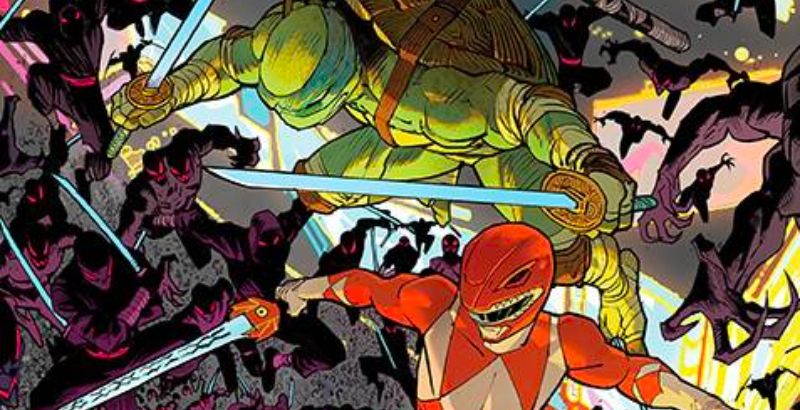
Political satire and comics go way back. First documented in 18th century England, political cartoons speak truth to power in newspapers all over the world. There’s even a Pulitzer Prize just for political cartoons. So it should come as a shock to no one that political satire is alive and well in the world of comic books. Published by BOOM! Studios, the original graphic novel Grand Abyss Hotel tackles the political unrest of our digital age. Written by Marcos Prior, illustrated by David Rubín, lettered by Deron Bennett, and translated into English by Andrea Rosenberg, Grand Abyss Hotel sets the world on fire and kicks up the ashes.
Grand Abyss Hotel HC takes place at the tail end of a societal revolt. Big business and “fake news” overrun the world while giant corporations vie for control of governments. Just as lobbyists try to convince us to make do with less, protests break out across the nation. Crowds gather, shouting to make their voices heard. Among them stands a man in a mask. He rushes the police barriers with force, taking on all who stand in his way. In his wake he leaves the embers of revolution, sparking a chain of events that will reshape society.
Grand Abyss Hotel is presented in landscape. Each page features a never-ending stream of talking heads including reporters, specialists, and political personalities that flood Grand Abyss Hotel with their cross-talk. The book deftly captures the modern sense of information overload. Every speaker tells us what is happening on the page has a different story, each convinced that they are the foremost expert. But the more they speak, the more obstructed the page becomes. And when every expert chimes in it becomes impossible to tell one voice from another. It’s one of the best examples of a visual metaphor I’ve seen in comics and it’s only made stronger by the book’s landscape presentation.
It’s not just the visuals that bite. In Grand Abyss Hotel, Prior’s writing cuts to the quick. Every sliver of fake news reads like the real thing, while the grotesque lobbyists echo the same lies you’ll find on the news today. Some scenes in this book speak to a fit of furious anger born from living in a dysfunctional society. One scene, in which a lobbyist wakes up inside the titular hotel, had me grinding my teeth and nodding my head. If you have any of that anger inside of you, then these scenes will linger long after the final page.
Prior gives a face to hypocrisy, to those whose greed steers nations into ruin. And then he lets us watch those faces get punched. As guests of the hotel, readers finally see these figures held culpable for their actions. In a way, Grand Abyss Hotel could be called optimistic. It creates a world where a single act of defiance can change the course of the world for the better.
But with only a tight four chapters to tell its story, Grand Abyss Hotel runs into a common wall. It simply has far more to say than space to say it. Each of its four chapters goes for the throat, viciously attacking the societal inequities shown on the page. But the book takes very few measures to tie its story together. The titular hotel plays a major factor in the graphic novel’s revolt. But each chapter varies wildly in setting and tone, which makes it unclear how they’re all connected. With more room to tell its story, I can see this book resonating stronger as a narrative.
Grand Abyss Hotel paints a vivid picture of society on the verge of revolution. Without a layer of connective tissue, though, it reads more like a series of compelling vignettes. But with as much visual flair David Rubín brings to the table, Grand Abyss Hotel is a compelling work of political satire you won’t forget.
Grand Abyss Hotel is available now wherever comic books are sold
Grand Abyss Hotel
TL;DR
Grand Abyss Hotel paints a vivid picture of society on the verge of revolution. Without a layer of connective tissue, though, it reads more like a series of compelling vignettes.






